Search Results for Tag: Latin America
Direct democracy via smartphone
You can do just about everything on your smartphone – so why can’t you use it to engage in politics?
For Pia Mancini in Buenos Aires, it’s not just a far-fetched idea. The young activist has developed what she calls a Democracy Operating System – or DemocracyOS -, an open-source platform for political debate. Political parties and organizations and download the system and repurpose it to suit their own program – like a lot of people do with WordPress blogging software.
The idea is that voters all over the world can easily find out what each party stands for and inform themselves properly.
Pia is also a politician herself and co-founder of Argentina’s tech-savvy Net Party.
Listen to Michael Scaturro’s report from Buenos Aires:
Young Chilean architect builds houses to last
Earlier this year, fires tore through Chile’s port city of Valparaíso, killing 15 people and burning nearly 3,000 homes to the ground.
Since then, 28-year-old Carolina Moraes, an architect who specializes in social and sustainable housing, has been volunteering her time to help some of the families who lost their homes.
She’s not settling for short-term solutions, but is teaching the locals to help themselves.
Listen to the report by Eilís O’Neill from Valparaíso, Chile:
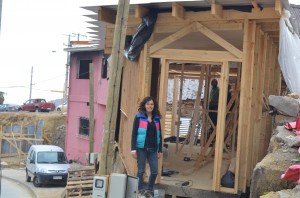
Carolina Moraes is building houses that are better than what local residents live in before the fire (Photo: E. O’Neill)
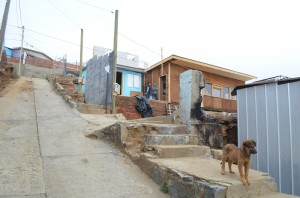
Many of the families affected by the fire had no legal title to the land they were living on (Photo: E. O’Neill)
Chilean teen fights homophobia with education
Chile is one of South America’s most socially conservative countries, and discrimination against gays and lesbians is still widespread. In March 2012, 24-year-old Daniel Zamudio was tortured and murdered after his attackers learned of his sexual orientation. And, just this January, 22-year-old Esteban Parada died in a similar attack in downtown Santiago.
Alberto Cid, 18, is determined to turn the tide and put an end to bullying and discrimination in Chile. The answer, he says, lies in education. First, he became president of Movilh Joven, a gay rights activist group that targets youth, and now he’s focused on getting sexual diversity into the local schools’ curricula.
Listen to the report by Eilís O’Neill in Santiago, Chile:
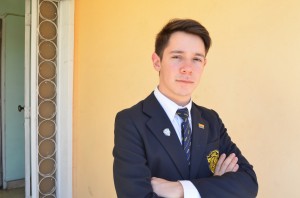
Alberto Cid is first tackling his own high school in Santiago, where he is a member of the student government and the LGBT student group (Photo: E. O’Neill)
Hope for Chile’s poorest
Emil Schneider, a 19-year-old from Germany, was shocked to see with his own eyes that the poorest of the poor in Chile are not having their basic needs met. That’s why he signed up as a volunteer with TECHO, an organization that works with at-risks family in the slums.
Tamara Ramos, a coordinator for TECHO says the group’s aim is to empower those living in extreme poverty to find jobs so that they can reach long-term financial stability.
Listen to the report by Francisco Tapia in Vina Del Mar, Chile:
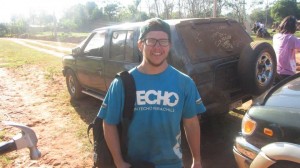
Emil says he was shocked to see basic human needs not being met on the streets in Chile’s slums (Photo: Emil Schneider)
Project runway in Buenos Aires
Many young women in the shantytowns of Buenos Aires struggle with drug abuse or unwanted pregnancy. Learning to walk with self-confidence can change that, says Guido Fuentes. So he opened a modeling school.
Listen to the report by Eilis O’Neill in Buenos Aires:
Brazilian hiphop artist promotes respect for women
Six out of 10 Brazilians know a woman who’s experienced domestic violence, according to a recent survey. Hiphop artist André Luis Machados in Rio de Janeiro uses his music to get people to rethink violence against women.
Listen to the report by Naomi Conrad in Rio de Janeiro:
Brazilian hiphop artist promotes respect for women
Being black in Brazil
Brazilians with an African background deal with racism and a lack of representation. Roberta heads a small NGO that works to reaffirm Afro-Brazilian identity, build girls’ self-esteem and discuss prejudice in daily life.
Listen to the report by Milton Bragatti in Sao Paulo:
View the Frida Kahlo Association’s brochure online.
Bolivian gives language a digital future
Aymara is spoken by fewer and fewer Bolivians. But 30-year-old Ruben is now working with Facebook and Wikipedia to make sure his indigenous language is armed for the future.
Listen to the report by Peter Teffer in El Alto, Bolivia:
Bolivian gives his language a digital future
Visit Jaqi Aru’s website.
Check out the Aymara version of Wikipedia here.
Columbian entrepreneur gives disadvantaged youth a chance
Fighting poverty is a prime objective of Colombian entrepreneur Felipe Vergara. His approach is to support education, which is why he founded the Lumni scholarship network. Corporations invested so that young people with no means can go to college. Once they’ve found a good job, they can pay back the scholarship.
Watch this DW video for more.
Colombian theater teacher passes down his native culture
Edwin from Bogota teaches theater – but also the ancient values and traditions of his native Muisca culture. He’s stood up to threats from criminal organizations and encourages his students to be better human beings.
Listen to the report from DW reporter Pablo Medina Uribe in Bogotá, Colombia (with contributions from Eduardo Briceño):
Colombian theater teacher passes down his native culture
From the reporter:
I met Edwin a few months back when I was reporting on a series of threatening letters sent to artistic foundations in Bogotá. When I met him, he was the spokesperson for all of the threatened groups, so he was being harassed by a few journalists and national TV cameras. On TV, he said, “My name is Colombian Theater” and refused to give his real name because, he said, this wasn’t only his problem, it was everyone’s problem.
I still managed to get his number and real name and the way he spoke to the cameras stuck with me. Even in times of hardship, he was very conscious that he had to step up not for himself, but for his community of artists. That’s why I thought of him for the Generation Change series.
I went to visit him in his neighborhood, Bosa, a few months later. It is way out of the city towards the Southwest of the country, so I had passed it many times, but I had never been actually there. He insisted we meet there because that land is very important to who he is, but since I’d never heard a good thing about that neighborhood, I didn’t know what to expect.
When I got there, he started talking about his Muisca heritage and about how the indigenous people are still relevant to the community there. I knew that in other places of the country it is more common to live close to native tribes, but I wasn’t aware that this happens also in my own city.
Edwin and his friend Yohanis talked to me for hours as we discussed not only their work, but also Muisca philosophy. We also exchanged book titles and talked about our work. I told Edwin I was very interested in linguistics, so he and Yohanis gave me some lessons in Muiscogun, the language of the Muisca people, and taught me the deeper spiritual meaning of some of its words.
See the Bosa neighborhood of Bogotá on Google Maps here.



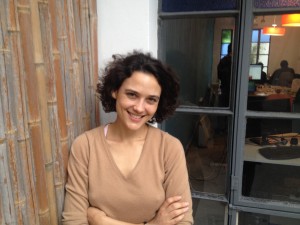

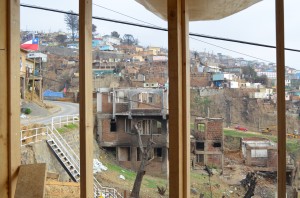
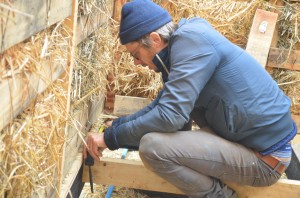
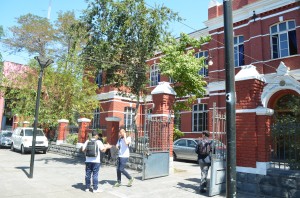


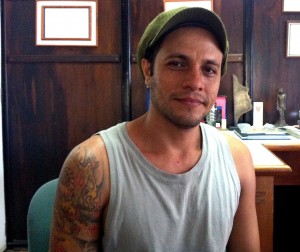

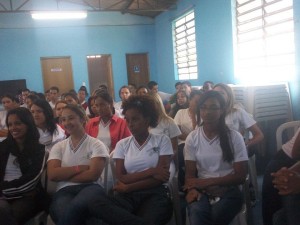
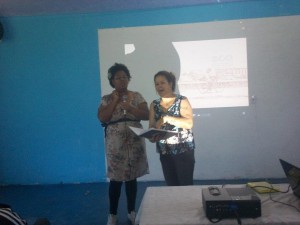

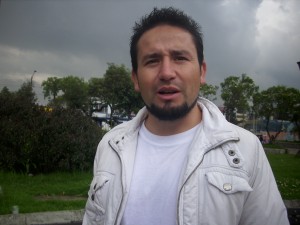




Feedback